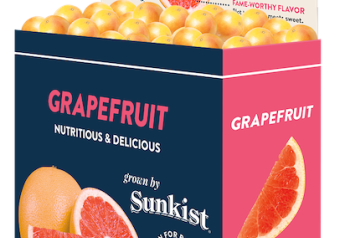U.S. International Trade Commission weighs testimony on cucumbers and squash

Hearing from domestic and import partisan interests, the U.S. International Trade Commission hosted an all-day virtual hearing April 8 on its investigation into unfair trade practices by foreign exporters on cucumber and squash imports into the U.S. market.
The ITC said in January that it expects to transmit the results of both investigative reports to the Office of the U.S. Trade Representative no later than Dec. 7 this year.
Florida Agriculture Commissioner Nikki Fried was the first witness at the hearing, and she pointed to injury to Florida’s $90.9 million cucumber and $35.4 million squash industry caused by imports.
Fried said that since 2015, a surge in imports of fresh and chilled cucumbers and squash, predominantly from Mexico, has caused an estimated 2,721 lost jobs, $944 million in lost cash receipts, and $1.85 billion in negative economic impact for Florida’s domestic produce growers.
In her testimony, Fried gave the ITC two reports from the Florida Department of Agriculture and Consumer Services showing that while Mexico’s market share of these produce imports increased as much as 134% since 2000, Florida’s has decreased by 61%, while Georgia’s and Michigan’s cucumber market share has decreased by 35% – and Georgia’s squash market share has decreased by 84%.
“It is my hope that while the ITC continues to uncover the devastating impact that increased imports are inflicting upon on our domestic cucumber and squash industries, along with your ongoing monitoring of fresh strawberry and bell pepper imports, you will employ all tools at your disposal to provide equity and fairness for American farmers,” she said in her remarks.
After her prepared remarks, one ITC commissioner questioned Fried about land prices and the effect of urbanization on vegetable production in Florida.
Fried said growers are at a “hard crossroads,” with rising land prices but insufficient returns from agriculture.
“Farming is just not making ends meet,” she said.
Commissioners also questioned witnesses about the labor shortages in the U.S., wage rates in the U.S. compared with Mexico, and investment in Mexico by U.S. produce operators.
Lance Jungmeyer, president of the Fresh Produce Association of the Americas, said many retail customers have come to prefer purchasing Mexican squash and cucumbers because of the priority of non-price factors such as superior quality, and consistency and reliability of supply.
Rather than damage from imports, Jungmeyer said labor shortages have hurt U.S. growers.
“Mexico cannot be blamed for U.S. farmers not having enough labor and agricultural workers to work their fields,” he said.
In addition, Jungmeyer said Mexico can’t be blamed for weather factors such as hurricanes and tropical storms that cause damage to Florida producers.
Similarly, rising land prices because of population growth in Florida can’t be attributed to imports of Mexican fresh produce shipments to the U.S.
Jungmeyer said consumer preference has also played a role in the rise of imports.
“Data from the Southeast so far has focused on changes in supply, but lacks the extremely important context of demand,” he said, noting that protected environment greenhouses have elevated appearance and quality of Mexican imports.
Others testifying in the first panel during the April 8 hearing:
- Glen Snoek, marketing and economic policy analyst, Ontario Greenhouse Vegetable Growers;
- Gene McAvoy, associate director for stakeholder relations, University of Florida;
- Charles Hall Jr., executive director of the Georgia Fruit & Vegetable Growers Association;
- Michael Joyner, president of the Florida Fruit & Vegetable Association;
- Dante Galeazzi, CEO and president of the Texas International Produce Association;
- Marie Bedner, owner of Bedner Growers Inc.; and
- Richard “Dick” Bowman, director of farming, J&J Family of Farms.







